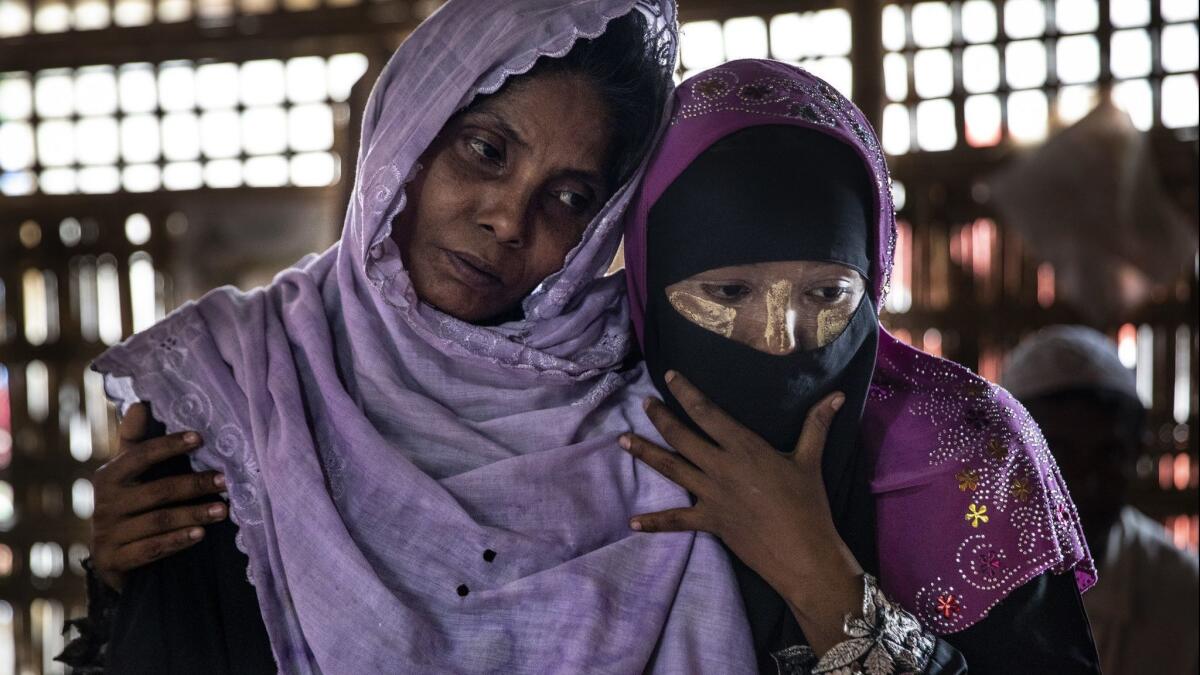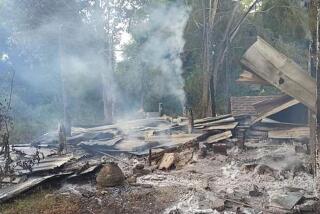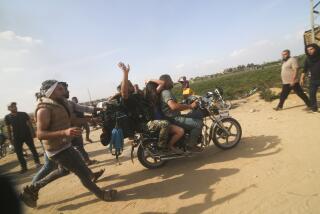Myanmar military chiefs should face ‘genocide’ case, U.N. team says

Reporting from GENEVA — Investigators working for the United Nations’ top human rights body said Monday that Myanmar military leaders should be prosecuted for genocide against Rohingya Muslims, taking the unusual step of identifying six by name among those behind deadly, systematic crimes against the ethnic minority.
The call, accompanying a first report by the team of investigators, amounts to some of the strongest language yet from U.N. officials who have denounced alleged human rights violations in Myanmar since a bloody crackdown began last August.
The three-member “fact-finding mission” and their team, working under a mandate from the U.N.-backed Human Rights Council, meticulously assembled hundreds of accounts from expatriate Rohingya, as well as satellite footage and other information to assemble the report.
“The military’s contempt for human life, dignity and freedom — for international law in general — should be a cause of concern for the entire population of Myanmar, and to the international community as a whole,” said fact-finding mission chair Marzuki Darusman, a former Indonesian attorney general, at a news conference.
The council created the mission in March last year — nearly six months before a string of deadly rebel attacks on security and police posts set off a crackdown that drove Rohingya to flee into neighboring Bangladesh. The U.N. estimates that more than 700,000 have fled.
The team compiled accounts of crimes including gang rape, the torching of hundreds of villages, enslavement, and killings of children — some before the eyes of their own parents. The team was not granted access to Myanmar and has decried a lack of cooperation or even a response from the government, which received an early copy of the report.
The team cited a “conservative” estimate from aid group Reporters Without Borders that some 10,000 people were killed in the violence, but outside investigators have had no access to the affected regions — making a precise accounting elusive, if not impossible.
Above all, the investigators said the situation in Myanmar should be referred to the International Criminal Court, and if not, to a special tribunal. Last week, Myanmar’s government rejected any cooperation with the ICC, to which it is not a party. China, a permanent member of the U.N. Security Council with veto power over whether the issue will be brought before the ICC, has been reticent about condemning Myanmar’s government during the crisis.
U.N. leaders, foreign government officials and human rights watchers have for months cited evidence of genocide in Myanmar, and the United States late last year said that “ethnic cleansing” was occurring in Myanmar. But few experts have studied the issue as in-depth, and in such an official way, as the fact-finding mission with a mandate from the 46-nation council.
The United Nations does not apply the word “genocide” lightly. The team’s assessment suggests crimes against the Rohingya could meet the strict legal definition, used to highlight and condemn state-supported abuses in places like Bosnia, Rwanda and Sudan’s Darfur region.
The investigators cited six Myanmar military leaders as “priority subjects” for possible prosecution, including Commander-in-Chief Min Aung Hlaing. A longer list of names is to be kept in the office of the U.N. human rights chief for possible use in future judicial proceedings. The United States and European Union have already slapped sanctions on some Myanmar military leaders, though Min Aung Hlaing is not among them.
More to Read
Sign up for Essential California
The most important California stories and recommendations in your inbox every morning.
You may occasionally receive promotional content from the Los Angeles Times.










